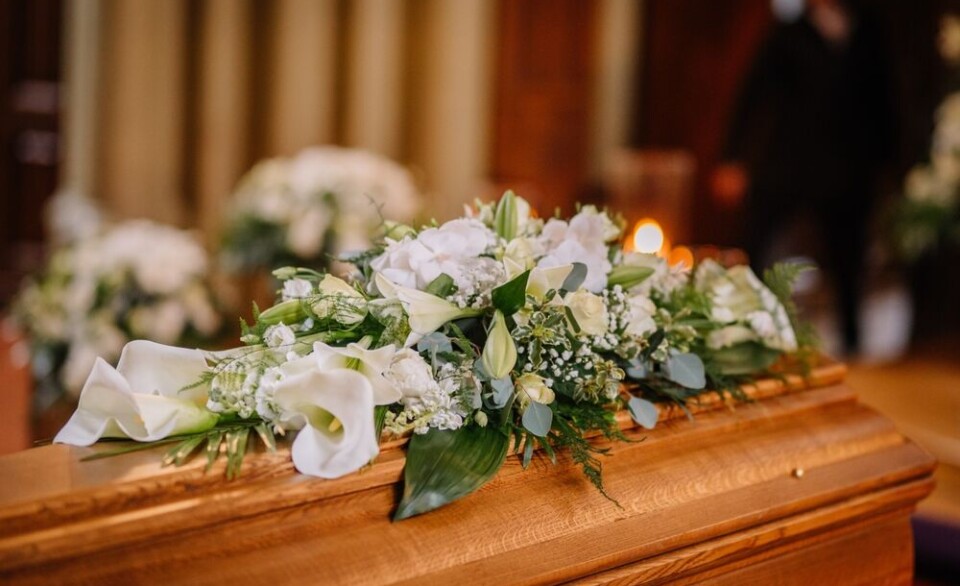-
Drinking tap water restricted for children in south-west France communes
Haute Garonne prefecture says the measure is precautionary and due to high chlorate levels
-
‘Trustworthy’ media label idea from Macron causes political storm in France
Comments prompted fierce political backlash from right but government insists it was taken out of context
-
French prime minister faces fresh problems to pass a 2026 budget
MPs continue to argue over budget but alternative measures could possibly see government toppled
Covid-19 in France: What is ‘social distancing’?
The French Prime Minister has said France should employ “distanciation sociale” - or “social distancing” - including staying indoors and keeping at least one metre away from others. We explain more.

Social distancing is a strategy that includes avoiding - as much as possible - crowded places, meeting places, or close contact with groups or other people. These situations can enable viruses to spread easily between people.
Viruses can generally be stopped from spreading easily when people maintain a distance of at least one metre between themselves and others. The greater the distance, the more effective the strategy becomes.
Prime Minister Edouard Philippe made the recommendation as part of a wider statement on measures to stop the spread of Covid-19 in France.
He said: “We must avoid gathering as much as possible; limit friendly and family gatherings; use public transport only for work, and only if physical presence is completely necessary; only go out for essential shopping, to take a little exercise or for voting [in the municipal elections].”
Nous devons éviter au maximum de se rassembler, limiter les réunions amicales et familiales, n’utiliser les transports en commun que pour le travail, et seulement si la présence physique est indispensable, ne sortir que pour ses courses essentielles, un peu d'exercice ou voter. pic.twitter.com/KSaY6Jmmf3
— Edouard Philippe (@EPhilippe_LH) March 14, 2020
During a time of social distancing, certain measures should be taken to avoid coming into unnecessary contact with others, especially in the workplace, should you not be able to work from home.
- Use the phone, video calls, or Internet communication for as many tasks as possible (even when communicating with others in the same building)
- Allow employees and staff to work from home, or use different shift patterns, to limit the number of employees in the workplace at any one time
- Cancel or postpone trips, reunions, workshops and other non-essential activities
- Avoid public transport, and try to go to work on foot or by bike, or private car if possible. Allow employees to arrive early or late to work, to allow them to avoid transport rush hours.
- Allow employees to eat at their desk, and at staggered times, to avoid people congregating in canteens or food court areas
- Avoid lingering in workplace kitchens, coffee areas or photocopying areas
- If meetings are still 100% required, use large meeting rooms where necessary, so that people can sit with more space between them (at least one metre away)
- Avoid shaking hands or kissing people to greet them
- Encourage staff to cancel or postpone any meetings outside of the workplace, especially in areas where they may be exposed to people who may be contagious.
These recommendations come from Canadian workplace hygiene and safety centre, Le Centre Canadien d'Hygiène et de Sécurité au Travail.
The French government has issued health advice to help stop the virus from spreading.
This advice includes:
- Keep a 1 metre distance between yourself and others.
- Wash your hands with soap or hydro-alcoholic sanitiser gel frequently.
- Cough or sneeze into your elbow rather than your hands.
- Use single use tissues and dispose immediately after use.
- Do not shake hands, or greet people with kisses on the cheek.
- If you are sick, stay at home and wear a mask in the company of others.
If you believe you are sick, do not go to the hospital or visit your local doctor as you may infect others. Instead call your local doctor and take paracetamol for the fever. Do not take anti-inflammatory drugs such as ibuprofen or cortisone to treat the possible symptoms of Covid-19 as these could actually worsen the infection.
If you have returned from a high risk area, including China (mainland China, Hong Kong, Macao); Singapore, South Korea, Iran or the Lombardy and Veneto regions of Italy, and present symptoms of respiratory infection such as fever, cough, difficulty breathing within 14 days of your return, call the SAMU emergency number, 15. Do not go to your local hospital or doctor.
A free hotline service can answer your questions about the coronavirus Covid-19 non-stop, 24 hours a day, 7 days a week: 0800 130 000. It cannot give medical advice.
Read more
- Covid-19 in France: A second wave?
- Covid-19 in France: Limit trips
- Covid-19: 'Ibuprofen can worsen infection'
- Covid-19: Restaurants, cafes, non-food shops to close
- Covid-19 in France: What impact on work?
- Covid-19 in France: cinemas, sport, Brexit talks
- Covid-19 in France: What impact on travel?
- Covid-19 in France: Questions on school closures
Stay informed:
Sign up to our free weekly e-newsletter
Subscribe to access all our online articles and receive our printed monthly newspaper The Connexion at your home. News analysis, features and practical help for English-speakers in France
























